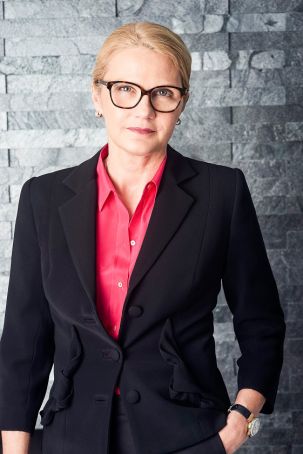The Chief Justice says a multi-agency committee is being formed to reduce delays in court cases following the Covid-19 lockdown.
In a wide-ranging interview with Kathryn Ryan on RNZ’s Nine to Noon programme, Dame Helen Winkelmann says due to the lockdown there is a “high level of resolve” to tackle the delays.

Dame Helen was asked by Ryan about the “extreme stress” on the system, and how that could be changed.
“That issue of churn is a particular focus,” she replied.
“The Chief District Court Judge has formed a special committee to address this. It's a committee made up not just of judges, but also of the profession, of Corrections, of the Police. And we've tried that before, but I think what's happened is that the pandemic response has been such a stress test, such a cauldron of an experience, that there is a high level of resolve that we can make a difference now.
“People believe that they can, through working together, change how things are done. And really, honestly, we have to, because our remand population is unacceptable. Those on remand, often they're not even convicted, they're actually awaiting trial. Some are just waiting sentence. They don't have access to rehabilitation, so they can often be sentenced and then released immediately.
“And that should be of great concern to us as a society, because what are we putting them in there for? We want them to have access to rehabilitation programs during their sentence, not being sentenced and then immediately released.”
'We have to design the model'
During the interview, Dame Helen noted that additional District Court Judges were appointed pre-lockdown but that more needed to be done in the courts.
“…. and there may well need to be some investment, but there are more fundamental things that we need to do before we think about spending extra money on judges, or courthouses, we have to design the model. And then we have to implement it.
“It is a human enterprise. And the most fundamental thing we have to change is human behaviour. And so the work is already underway reaching out into community and getting support in place. We have the support of the Ministry of Justice, and I know the present Minister is also very supportive of the mainstreaming of therapeutic courts.
“So I'm not so focused on additional resources at the moment, but if we look in the future, it's going to have an impact on the way our courthouses look. For instance, when we build new courthouses, they'll look differently. They should be community places really where the community service providers are there supporting victims, defendants, defendants’ families.”
The Ministry of Justice has said that while confirmed figures around court delays are not yet available in the District Court the provisional figures suggest the impact of the suspension of jury trials has resulted in a net increase of 173 active cases – from 2,766 to 2,820 - and in the High Court there were 49 High Court criminal cases, including two trials in progress that were aborted due to the imposition of alert level 4, that have required a new trial date due to COVID-19.
In a statement issued last week, Dame Helen said jury trials would resume nationwide from the first week in August.
The Chief Justice took the precautionary step of suspending all jury trials on 18 March.
